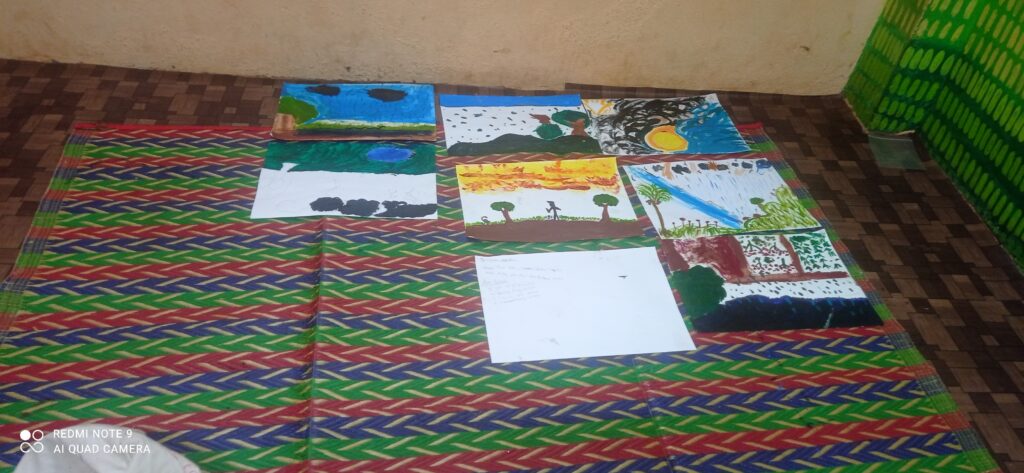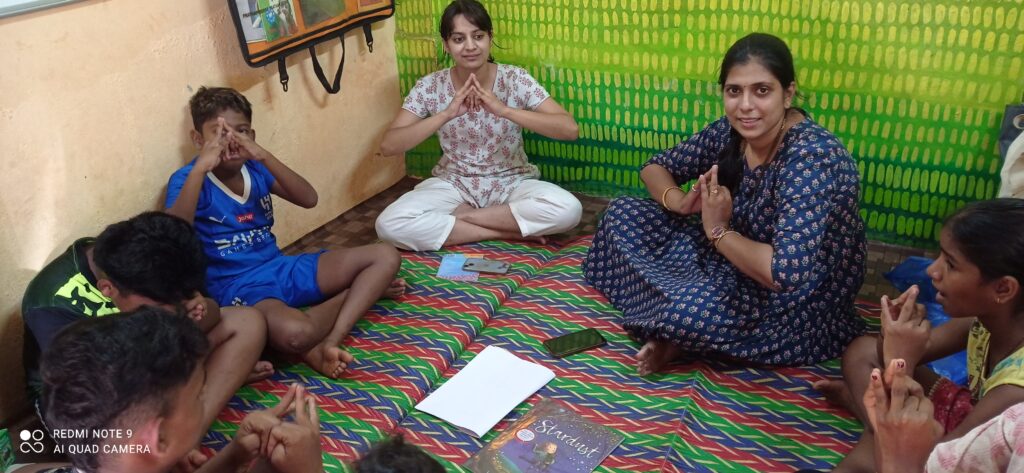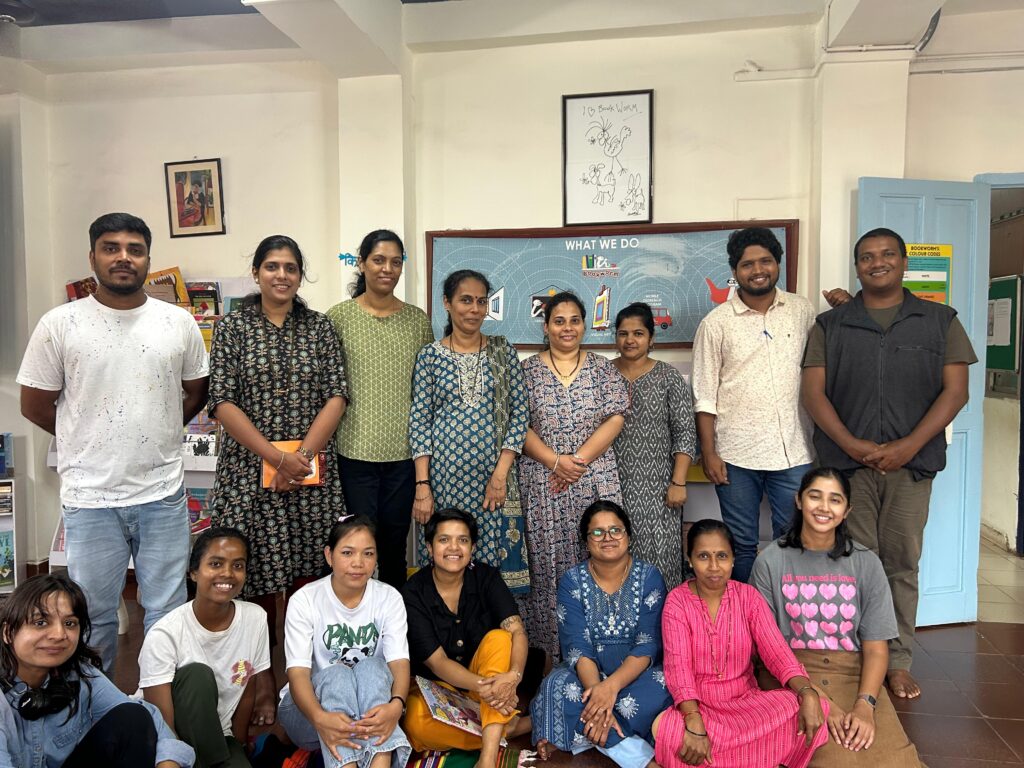Written by- Somya Jain
While I wish to write concisely and structurally about Bookworm as an organisation, I find it nearly impossible to be concise about something so expansive—an organisation that has taken on different shapes for different people.
I could write about the one child who came daily to read, carving out his own little horizontal space on the carpet. Or about the group of children who gathered in the heat of the day to borrow books. Or about the people who made that possible. Or perhaps about the book collection itself—vast and carefully curated to ensure there’s something for everyone.
But even then, it wouldn’t be enough.
We know that reading doesn’t just happen on its own—especially for children who live at the intersections of class, caste, disability, and gender. And when one understands the nature of these oppressive structures, it becomes clear that lack of access is just one of many barriers they create.
At Bookworm, I had the chance to witness multidimensional approaches that acknowledged the complex realities of education. Staying true to the ethos of a library, Bookworm didn’t shy away from questions of caste, sexuality, or other difficult topics children are often shielded from. Instead, these were gently introduced through stories and discussions—transforming abstract concepts into living truths that require empathetic attention.
My experience with Bookworm showed me not only the magic that books can bring to children, but also the immense work involved in making that magic possible. I had the opportunity to be part of that process—as a volunteer, an instructor, and most importantly, a reader. Whether it was Library in Homes, Library in Schools, or the Mobile Outreach Programme, each initiative served diverse needs while remaining rooted in the same core values: inclusive engagement and meaningful connection. There was never a need to justify who the work was for or why it mattered—it was self-evident.
Though teams were divided by projects, the organisational culture maintained a sense of collective learning. The online book talks, which brought together team members and children from different centres, were a particularly powerful example. These sessions moved beyond professional sharing; they became spaces of personal exploration, where each participant recounted their book and the reflections it sparked.
Being surrounded by these resources daily helped me connect with them deeply. Often, during short breaks at the office, I found myself reaching for a book—sometimes on folk art, sometimes on change-makers, sometimes just for joy. These moments grounded me and kept me aligned with the organisation’s mission. After all, how can one inspire a love for books in children if they haven’t embraced that love themselves?
As a neurodivergent person, the library became a space where my chaotic mind could finally rest. I’d find myself clutching too many books at once—on too many topics—and no one stopped me. Only encouraging glances came my way. I had found my space. And it warms my heart to know that many younger than me will also find such a space—one where they don’t need to police themselves in order to learn and explore.
Even the infrastructure challenged the conventional idea of a library as a strictly formal reading space. At Bookworm, the library could be wholly occupied—it invited readers to lie on the dari, to browse by colour-coded themes, to sit however they liked, with whichever book they wanted. It didn’t demand upright posture or silence. Instead, it invited stillness of a different kind—one of comfort, curiosity, and ease. The values of the organisation were visible in every shelf and corner.
As a late reader myself, I often wonder how different my childhood might have been had I encountered a space like this earlier. Perhaps I would’ve discovered my love for learning sooner—been more open to different ideas and narratives.
But I’d like to believe I haven’t lost that chance. And as long as community libraries like Bookworm exist, that chance will remain alive—not just for me, but for generations of children yet to come.



